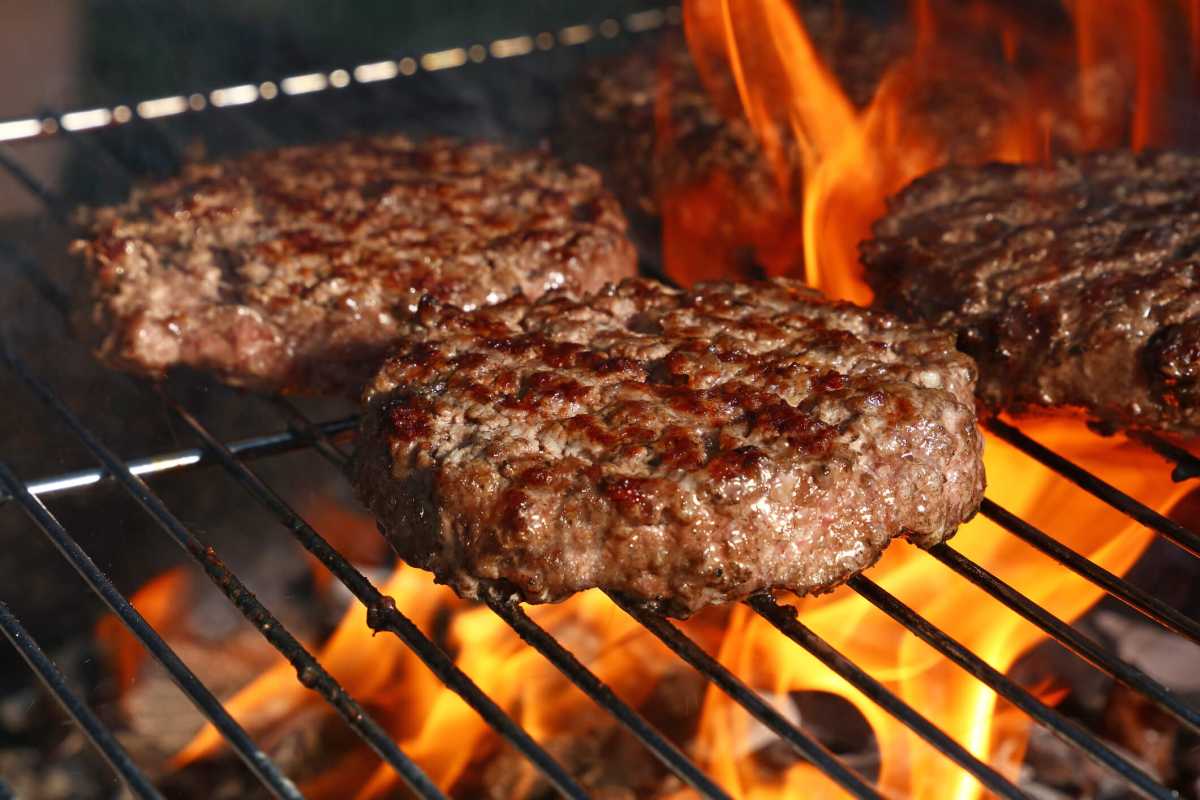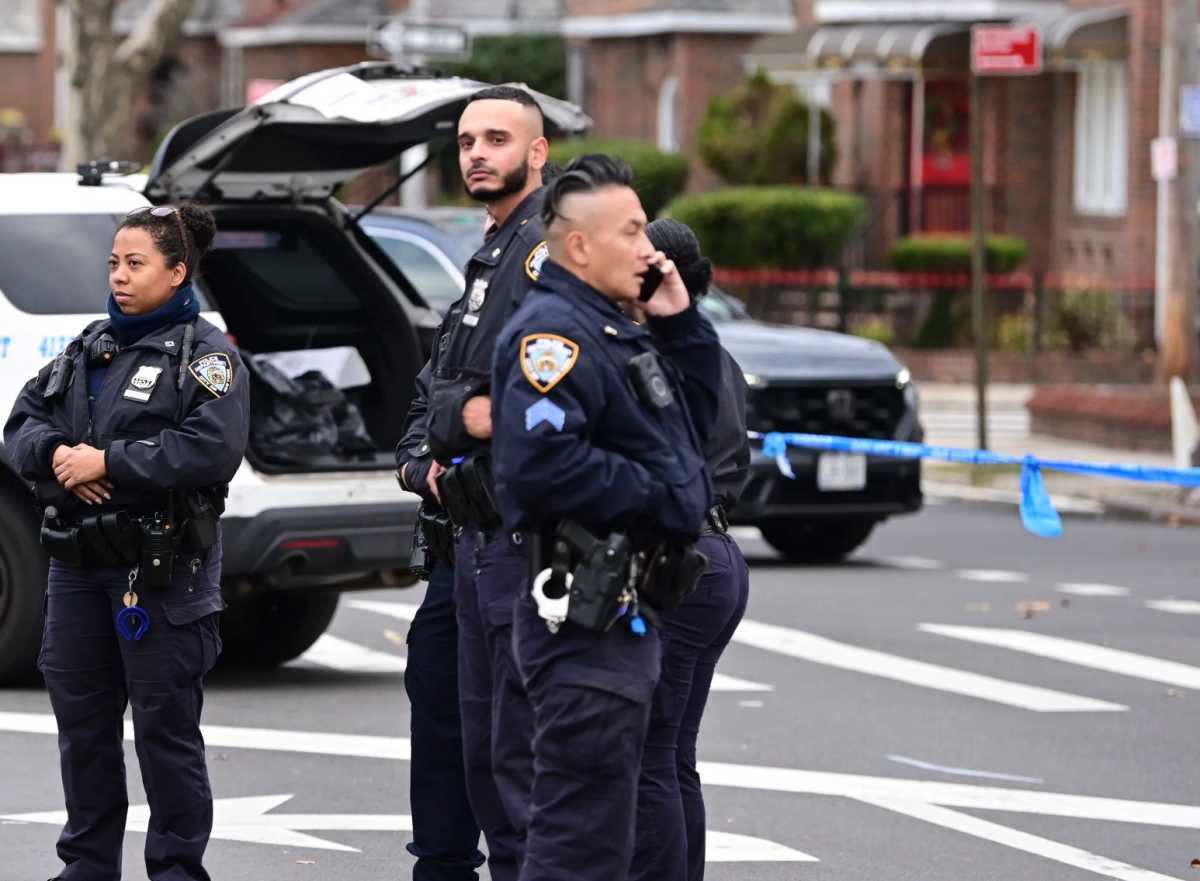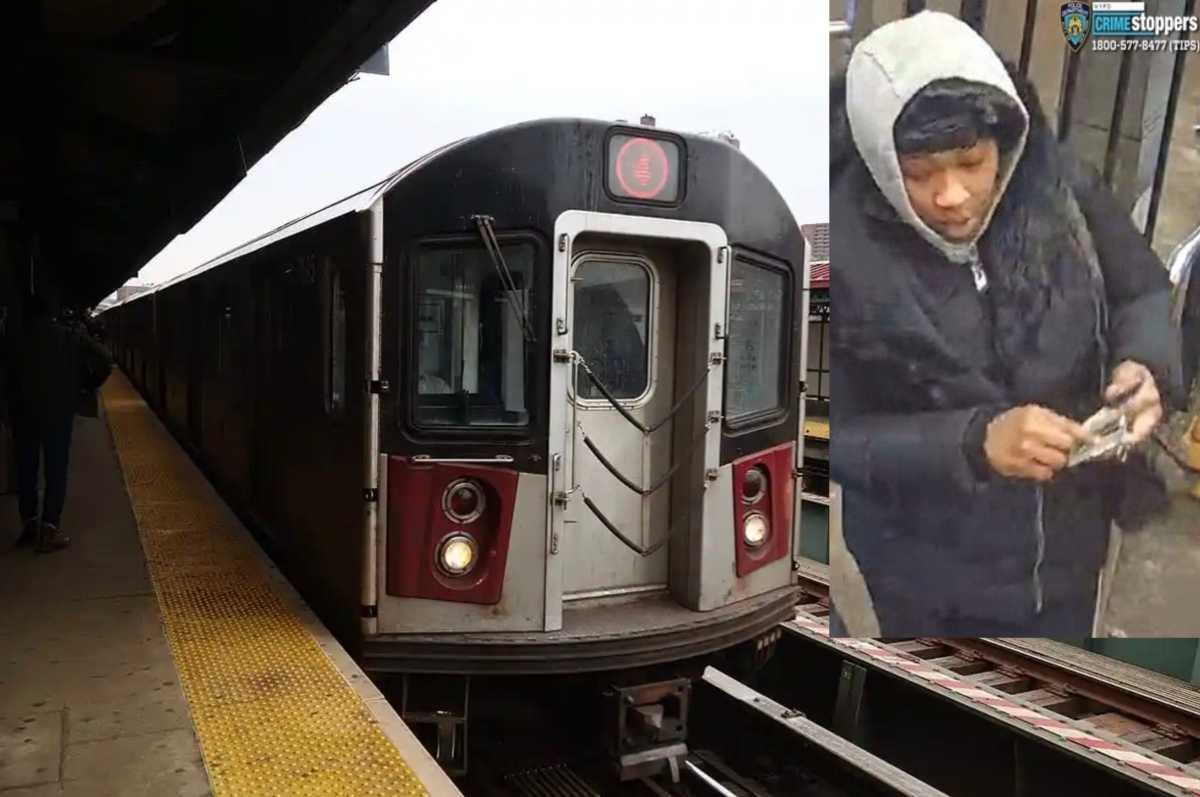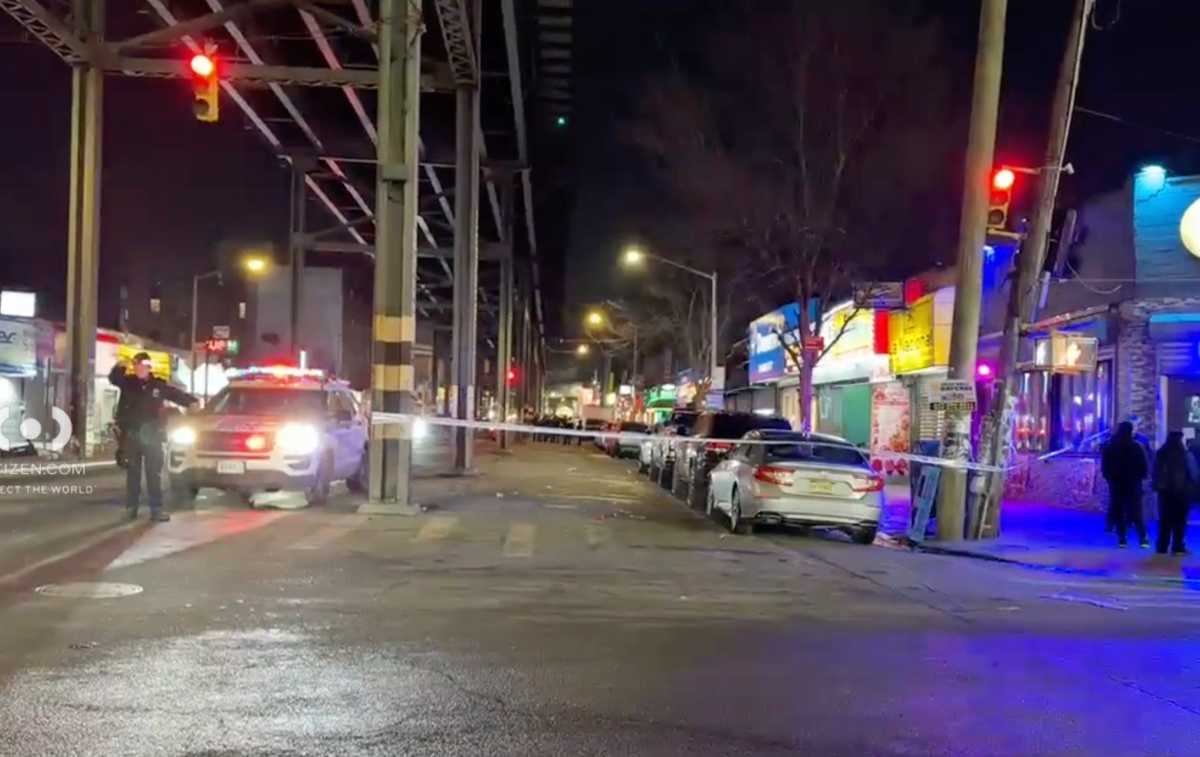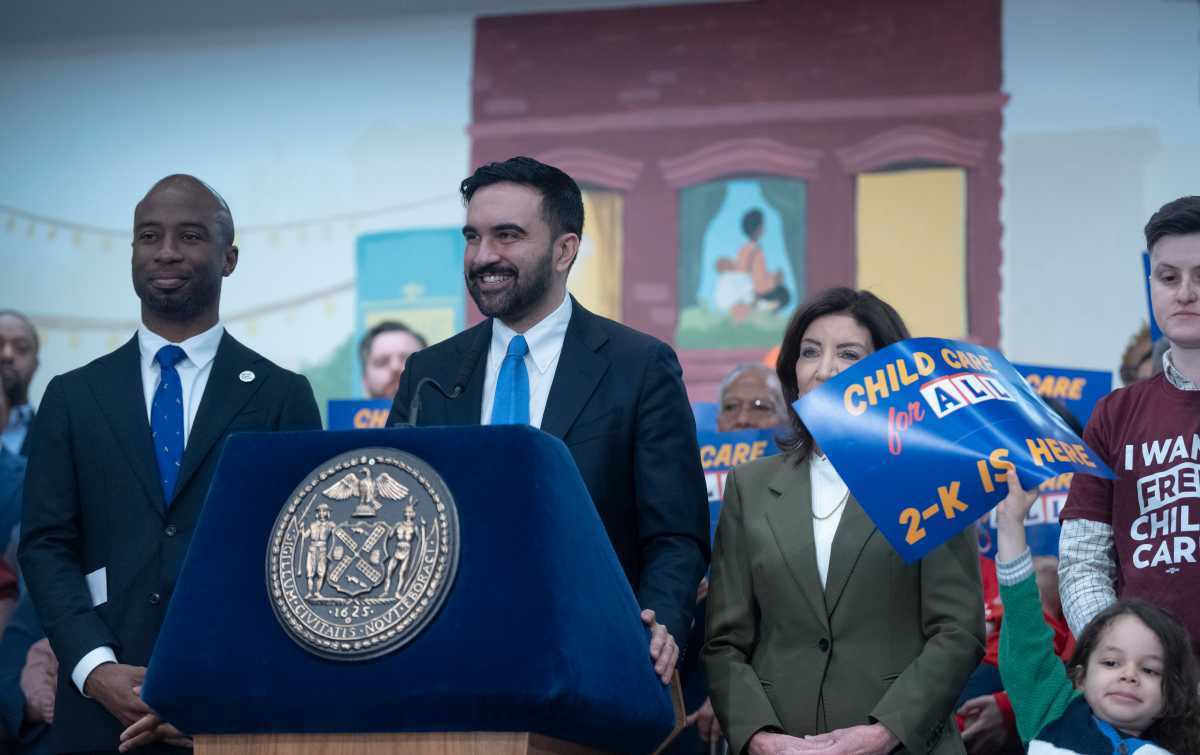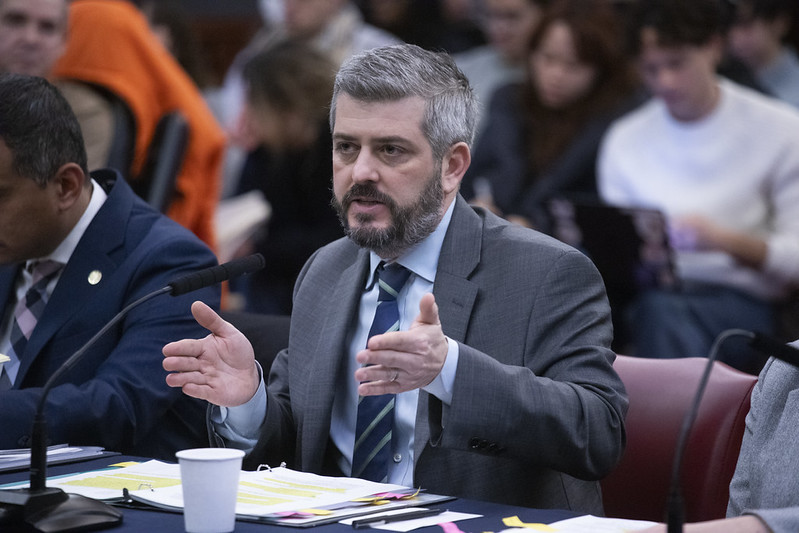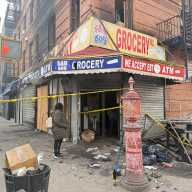U.S. Rep. Ritchie Torres wants to make it easier for small businesses to tackle the most significant but often under-recognized source of pollution in the Bronx’s ongoing effort for cleaner air: the old grill top at your favorite local restaurant.
On Thursday, Torres introduced the “Cutting Harmful Emissions in Food Service Act” (CHEFS) Act, which would give sliding scale tax credits to small business owners updating their stoves or adding a qualifying emissions control device.
Rob Walsh, president of the Bronx Economic Development Corporation, said that the bill would be a triple threat in benefits for the Bronx.
“The CHEFS Act delivers timely and meaningful relief for small restaurant owners across the Bronx and New York City who are balancing the rising costs of doing business with the need to meet evolving environmental and public health standards,” Walsh said. “These neighborhood anchors play a vital role in our local economy, and this legislation provides a pathway for them to stay open, stay compliant, and continue to create jobs, without having to choose between sustainability and survival.”
Torres’s new proposal for a federal tax cut comes just ahead of the planned enforcement of New York City’s new requirements to reduce commercial cooking emissions by 75% for stoves installed before 2016 that cook more than 875 pounds of meat a week. This rule will largely apply to restaurants with a relatively high volume of char-broiled meat, like steak houses and burger joints. Both the city’s new rule, and Torres’s proposed legislation target commercial char broilers, cook stoves and emissions control devices.
The city’s Department of Environmental Protection said it welcomes the effort to ease the financial burden of keeping the city’s air clean.
“We’re grateful to Congressman Ritchie Torres for his attention to this issue. We certainly want to see restaurants get the support they need to keep the air clean and protect public health,” said DEP Commissioner Rohit T. Aggarwala. “We’re still reviewing the legislation, but we appreciate any measure that advances our air quality goals and helps small businesses comply — while also saving them money.”
But while a tax credit that would help restaurant owners purchase expensive new equipment or filtration systems for restaurants that may be required to reduce their emissions, whether or not there is the political will in Washington to clear the air is questionable.
In the first six months of the new administration, President Trump has dismantled tax breaks for green energy initiatives, opting to promote the use of fossil fuels, which have long been shown to add more greenhouse gases into the atmosphere.
But Torres told the Bronx Times that he believes the CHEFS Act will draw bipartisan support because the bill focuses on helping small businesses stay competitive, something important to both Democrats and Republicans on the Hill.
“The CHEFS Act is focused on helping small restaurants cut costs, modernize their kitchens, and reduce harmful emissions that pollute our air,” Torres said. “If Republicans want to be pro-business and pro-manufacturing, here’s their chance to prove it.”
The CHEFS Act proposes that the rate of the tax credit be linked to the amount that the restaurant pays to upgrade or update its qualifying equipment with new equipment or new emissions control devices. As the costs of improvements increase, the CHEFS Act calls for restaurants to get a higher percentage of that cost as a tax credit, starting at 10% for eligible expenses under $30,000 and increasing to 35% for eligible expenses over $150,000, with limited increases in percentage points for historic buildings depending on age.
The looming emissions deadlines for some restaurants that meet the city’s new rule’s volume and cook top-age requirements add to financial strains following the COVID-19 pandemic and a new outdoor dining program that Bronx restaurant owners have said they’re losing money to participate in, and city council members have called an “abject failure.”
The CHEFS Act must pass the House Committee on Ways and Means before advancing to the floor for a full vote, but if Torres can rally bipartisan support for it, restaurant owners in the Bronx could feel some relief when it comes time to replace their commercial grill or get a new filtration device.

